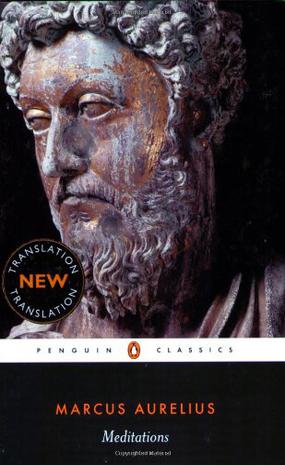欢迎来到相识电子书!
标签:MarcusAurelius
-
Meditations
One measure, perhaps, of a book's worth, is its intergenerational pliancy: do new readers acquire it and interpret it afresh down through the ages? The Meditations of Marcus Aurelius, translated and introduced by Gregory Hays, by that standard, is very worthwhile, indeed. Hays suggests that its most recent incarnation--as a self-help book--is not only valid, but may be close to the author's intent. The book, which Hays calls, fondly, a "haphazard set of notes," is indicative of the role of philosophy among the ancients in that it is "expected to provide a 'design for living.'" And it does, both aphoristically ("Think of yourself as dead. You have lived your life. Now take what's left and live it properly.") and rhetorically ("What is it in ourselves that we should prize?"). Whether these, and other entries ("Enough of this wretched, whining monkey life.") sound life-changing or like entries in a teenager's diary is up to the individual reader, as it should be. Hays's introduction, which sketches the life of Marcus Aurelius (emperor of Rome A.D. 161-180) as well as the basic tenets of stoicism, is accessible and jaunty. --H. O'Billovich --This text refers to the Hardcover edition. ?The emperor Marcus Aurelius, the proverbial philosopher-king, produced in Greek a Roman manual of piety, the Meditations, whose impact has been felt for ages since. Here, for our age, is his great work presented in its entirety, strongly introduced and freshly, elegantly translated by Gregory Hays for the Modern Library.? ?Robert Fagles -- Review --This text refers to the Hardcover edition. 'He has provided Farquharson's text with a lucid introduction, a select bibliography and light but helpful annotation. His selection of letters brings both Fronto and Marcus pleasingly to life.' Times Literary Supplement --This text refers to the Paperback edition.
热门标签
下载排行榜
- 1 梦的解析:最佳译本
- 2 李鸿章全传
- 3 淡定的智慧
- 4 心理操控术
- 5 哈佛口才课
- 6 俗世奇人
- 7 日瓦戈医生
- 8 笑死你的逻辑学
- 9 历史老师没教过的历史
- 10 1分钟和陌生人成为朋友

